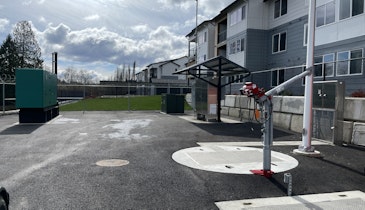After a couple of years of flirting with the issue, the New Castle County Council in Delaware imposed a permanent moratorium for large developments built with septic systems.
The vote came on Aug. 31, after several hours of public comments and debate, reported Delaware Public Media. New Castle County covers the northern Delaware, including the city of Wilmington and the western shore of the Delaware River.
Mostly affected is the rapidly growing and rural southern portion of the county. The moratorium forbids the development of more than five parcels on the same septic system.
Advocates of the ban cited the risk to water quality from onsite systems, and County Executive Matt Meyer has promoted the ban as part of what he calls his environmentally friendly Green Agenda. Opponents cited the risk to farmland value and the loss of potential retirement income for farmers.
Originally, the moratorium was supposed to be temporary so county planners have time to develop a master plan for that section of the county. In January 2020, the council extended the moratorium for 18 months after pressure from farmers prevented a permanent ban on septic systems. A nonprofit that promotes responsible economic policy also praised the delay because it would give people time to think about the issue.
The population in southern New Castle County is projected to increase by more than 8,000 people by 2050, says an advocacy sheet produced by the county government.
However, noted the Delaware Business Times, there is no timeline for providing sewer infrastructure to serve people in the area. Without that, developers turned to proposals for subdivisions that would rely on onsite systems.
Massachusetts
A Falmouth committee is looking at requiring a 300-foot buffer zone around water bodies in which advanced treatment units would be required.
Nitrogen is the pollutant of concern to the Falmouth Water Quality Committee and is endangering the health of several ponds in the municipality. Of 12 estuaries, only two could meet total maximum daily load limits using ATUs within 300 feet of the shore, consultant Kristen Rathjen of Science Wares told the committee, according to the Falmouth Enterprise. More examination is needed for other water bodies, she said.
* * *
Mashpee will require inspection and pumping of septic systems within 300 feet of Santuit Pond.
About half of the homes near the pond have not had their systems pumped in the last 10 years, Glen Harrington, the town’s health agent, told the Board of Selectmen in August. There are 121 systems within that 300-foot border. Excess nitrogen and phosphorus have caused cyanobacteria blooms in the pond, reported the Cape Cod Times.
Mashpee and nearby Barnstable have been sued by the Conservation Law Foundation over water pollution. The suit claims the municipalities have known for decades that nutrient pollution was the cause of declining water quality and have violated their own regulations by allowing water quality deterioration to continue.
New York
Federal pandemic funds will be used to double onsite grants to homeowners in Nassau County, said County Executive Laura Curran. State money of $2 million will be matched with another $2 million from the federal American Rescue Plan.
Applicants to replace or repair failing septic systems and cesspools will be eligible for up to $20,000 instead of $10,000, reported Newsday. About 90% of the county, which is on Long Island and abuts New York City, has municipal sewer service, but thousands of homes and small businesses along the county’s north shore rely on some type of onsite system.
* * *
Another phase of New York’s septic system replacement program is open for residents of Jefferson County. There is no additional money, but more people will be eligible.
Properties on the St. Lawrence River and Guffin Bay on Lake Ontario were added to the program after reports suggested wastewater from failing onsite system was leaking into those bodies of water, reported the Watertown Daily Times. The program pays half the cost of replacing failing systems, up to a maximum of $5,000, for properties within 250 feet of the shore.
Michigan
In the department of the more things change, the more they stay the same, we offer this item posted by the Manistee News Advocate and taken from its Aug. 12, 1961, edition:
“A large audience of 130 people attended a public meeting of the Onekama village council last night at Farr Center to discuss the pollution of Portage Lake near the village area caused primarily by inefficient outlets of septic tanks. The meeting and large turnout was prompted by the posting of pollution signs at the beach at Village Park on Friday morning due to the high bacteria count of water samples taken there.”





